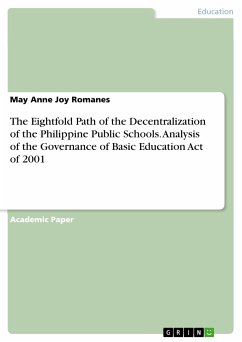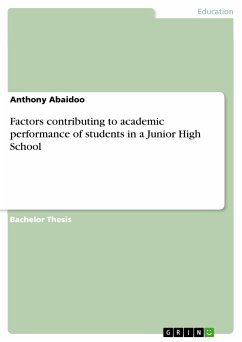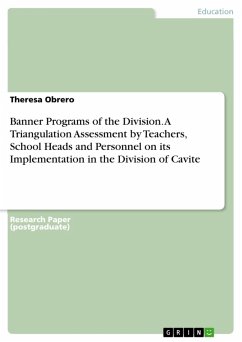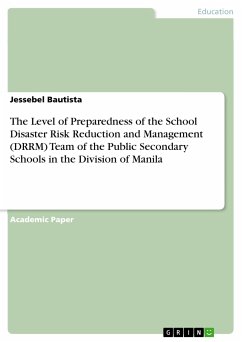
Cooperation in schools. School development through collegial cooperation? (eBook, PDF)

PAYBACK Punkte
0 °P sammeln!
Seminar paper in the subject Pedagogy - School System, Educational and School Politics, grade: 1,0, University of Kaiserslautern, language: English, abstract: Excellent work on cooperation and cooperation processes in schools. It is shown how collegial cooperation and team development can contribute to the development of schools. The work was written as part of a qualifying course of study "Master for School Management". The author is actively involved in the school service as a teacher. Following the logic of the proverb, he who works alone also reaches his goal. But this may take longer or t...
Seminar paper in the subject Pedagogy - School System, Educational and School Politics, grade: 1,0, University of Kaiserslautern, language: English, abstract: Excellent work on cooperation and cooperation processes in schools. It is shown how collegial cooperation and team development can contribute to the development of schools. The work was written as part of a qualifying course of study "Master for School Management". The author is actively involved in the school service as a teacher. Following the logic of the proverb, he who works alone also reaches his goal. But this may take longer or the result may not be as satisfactory as it could be through collaboration. Various modalities of work practice are also available in the context of educational work in schools. In addition to the lone worker who plans lessons alone, teaches alone, reflects alone, and solves all problems alone, there are various ways of working together. Schley (2011) refers to the model of the classic lone worker as the "one man model." This must be questioned in the context of school development because individuals cannot develop a school alone. School development can only occur collaboratively. Collegial collaboration in schools has always existed, but often only informally and with little institutionalization. In the literature on school development, teacher cooperation is considered the basis for professional action by teachers in school (cf. Bonsen 2010, p. 289f.). School development research also emphasizes the importance of cooperation for adequate educational provision for students. However, it is not entirely unproblematic to speak of cooperation, because different forms of collegial cooperation can be distinguished from each other, e.g. exchange, division of labor, and coconstruction, which have different functions in everyday school life (cf. Fussangel and Gräsel 2010, p. 258). Cooperation is an integral part of the everyday practice of teachers. Since school development processes are not possible in isolation, this thesis places cooperation in the system context of school development. To this end, the second chapter first provides a basic approach to the concept of cooperation. After a definition of the term, the forms and prerequisites of cooperation are presented. In the third chapter, the contextual conditions are considered. [...]
Dieser Download kann aus rechtlichen Gründen nur mit Rechnungsadresse in A, B, BG, CY, CZ, D, DK, EW, E, FIN, F, GR, HR, H, IRL, I, LT, L, LR, M, NL, PL, P, R, S, SLO, SK ausgeliefert werden.













